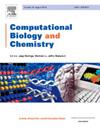通过分子对接研究水杨酸衍生物作为埃博拉蛋白抑制剂的硅片研究
IF 2.6
4区 生物学
Q2 BIOLOGY
引用次数: 0
摘要
扎伊尔埃博拉病毒是一种高毒力RNA病毒,可在人类和非人类灵长类动物中引起严重的出血热,目前尚无有效的治疗方法。本研究评估了六种水杨酸衍生物的抑制潜力,包括阿司匹林、双氟尼柳、芬多沙、化石、水杨酸和水杨酸盐;三种关键的埃博拉病毒受体蛋白分子对接技术被用来模拟这些衍生物与病毒蛋白VP24、VP35和VP40之间的相互作用。结果表明,水杨酸衍生物与VP35受体的结合亲和力明显高于其他受体蛋白。在所筛选的VP35蛋白衍生物中,靶向VP35蛋白的衍生物具有较好的结合能、滑翔能、滑翔模型、滑翔Evdw和滑翔配体效率,且RMSD值最低。这些发现表明水杨酸衍生物有望成为潜在的抗埃博拉疗法,值得在临床试验中进一步研究。本文章由计算机程序翻译,如有差异,请以英文原文为准。
In silico study of salicylic acid derivatives as inhibitors of Ebola proteins through molecular docking
The Zaire Ebola virus is a highly virulent RNA virus that causes severe hemorrhagic fever in humans and nonhuman primates, with no effective treatments currently available. This study evaluates the inhibitory potential of six salicylic acid derivatives including aspirin, diflunisal, fendosal, fosfosal, salicylic acid, and salsalate; against three key Ebola virus receptor proteins through in-silico analysis. Molecular docking techniques have employed to model the interactions between these derivatives and the viral proteins VP24, VP35, and VP40. The results revealed that the salicylic acid derivatives demonstrated significantly stronger binding affinities to the VP35 receptor compared to other receptor proteins studied. Among the derivatives screened, those targeting the VP35 protein exhibited superior binding energy, glide energy, glide Emodel, glide Evdw, and glide ligand efficiency, alongside the lowest RMSD values. These findings suggest that salicylic acid derivatives hold promise as potential anti-Ebola therapies and warrant further investigation in clinical trials.
求助全文
通过发布文献求助,成功后即可免费获取论文全文。
去求助
来源期刊

Computational Biology and Chemistry
生物-计算机:跨学科应用
CiteScore
6.10
自引率
3.20%
发文量
142
审稿时长
24 days
期刊介绍:
Computational Biology and Chemistry publishes original research papers and review articles in all areas of computational life sciences. High quality research contributions with a major computational component in the areas of nucleic acid and protein sequence research, molecular evolution, molecular genetics (functional genomics and proteomics), theory and practice of either biology-specific or chemical-biology-specific modeling, and structural biology of nucleic acids and proteins are particularly welcome. Exceptionally high quality research work in bioinformatics, systems biology, ecology, computational pharmacology, metabolism, biomedical engineering, epidemiology, and statistical genetics will also be considered.
Given their inherent uncertainty, protein modeling and molecular docking studies should be thoroughly validated. In the absence of experimental results for validation, the use of molecular dynamics simulations along with detailed free energy calculations, for example, should be used as complementary techniques to support the major conclusions. Submissions of premature modeling exercises without additional biological insights will not be considered.
Review articles will generally be commissioned by the editors and should not be submitted to the journal without explicit invitation. However prospective authors are welcome to send a brief (one to three pages) synopsis, which will be evaluated by the editors.
 求助内容:
求助内容: 应助结果提醒方式:
应助结果提醒方式:


